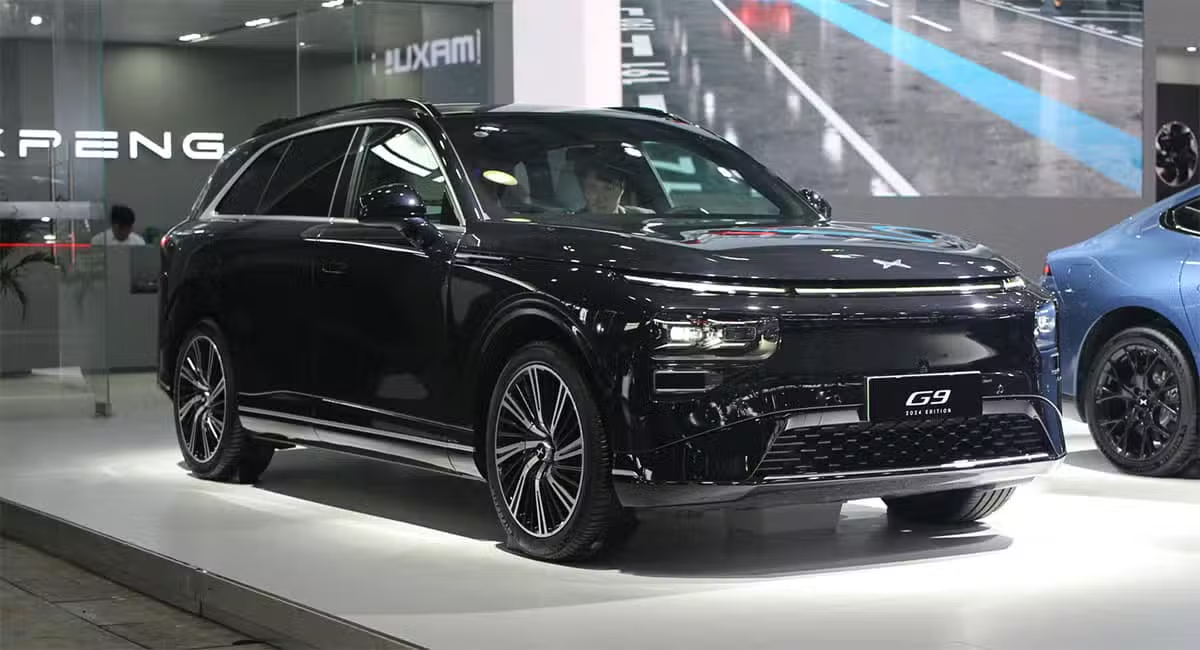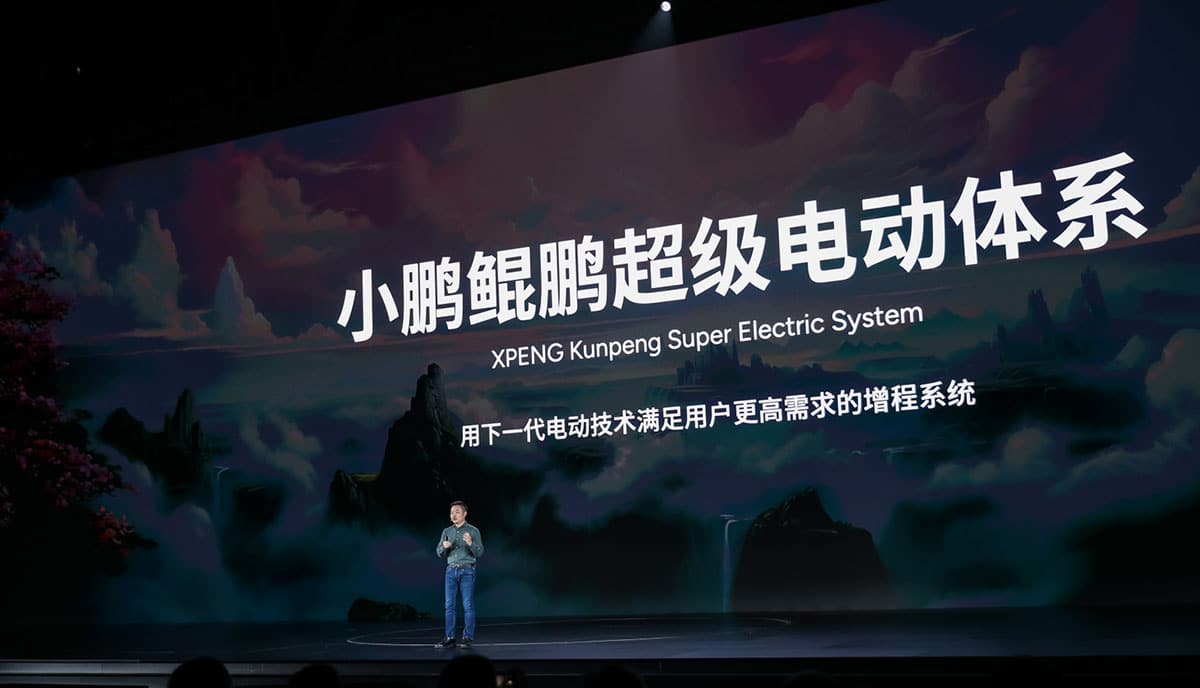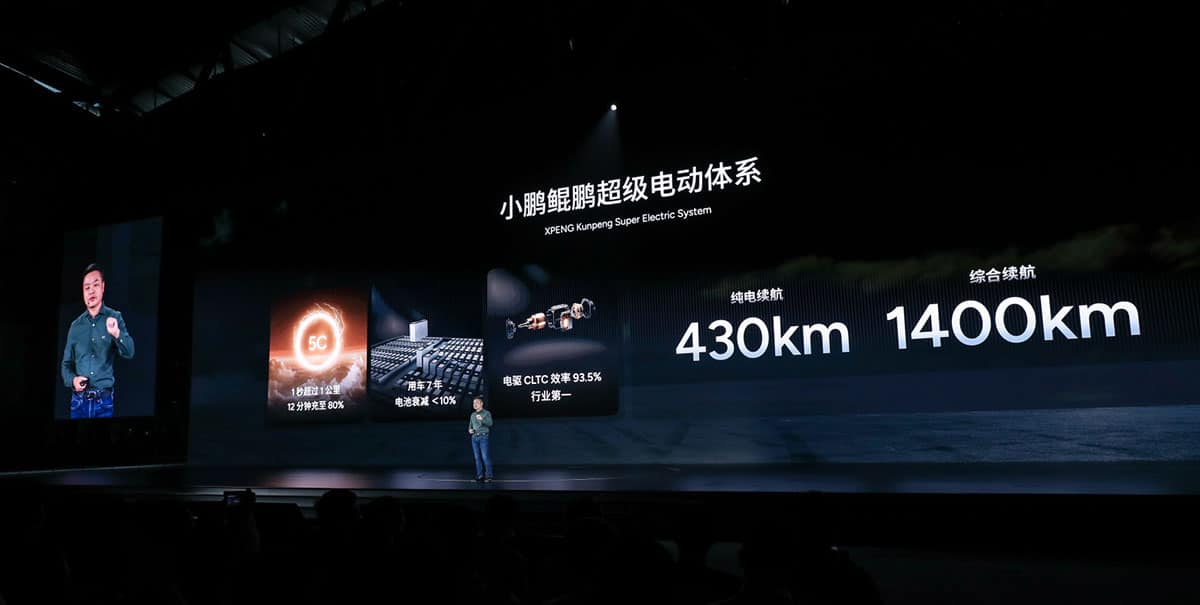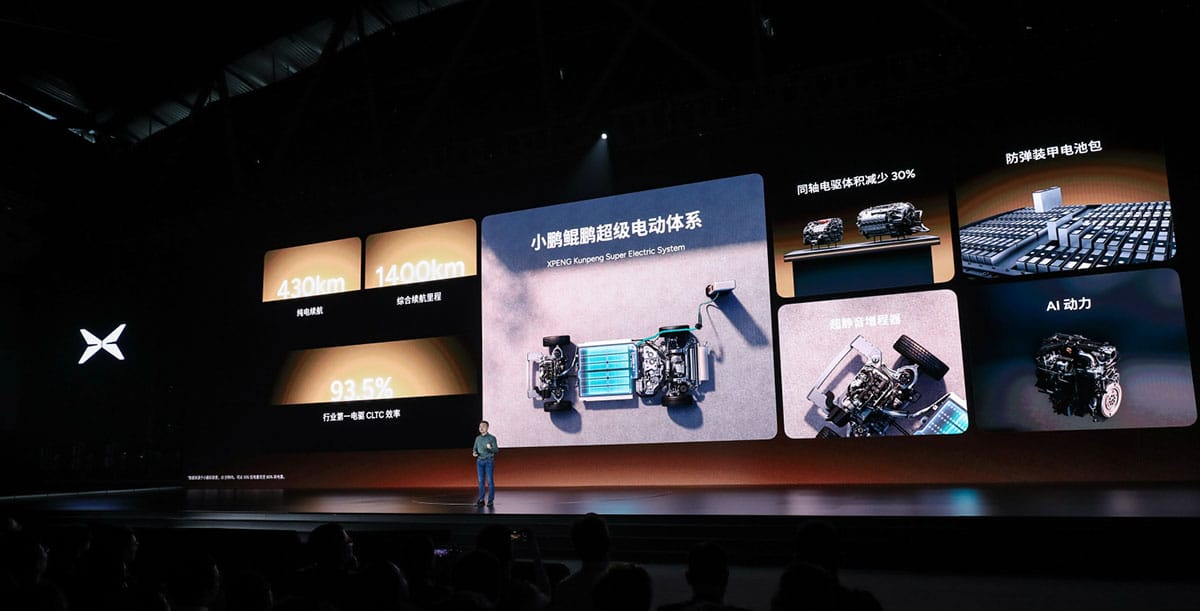Xpeng unveiled the Kunpeng hybrid system, which it said delivers up to 1,400 km of combined range and up to 430 km of battery range.

Xpeng (NYSE: XPEV) has officially unveiled an extended-range system called Kunpeng Super Electric System, becoming the latest to plan for hybrid vehicles after offering only pure electric models for the past five years.
The Chinese electric vehicle (EV) maker unveiled the Kunpeng system at the 2024 AI Day event held today in Guangzhou, where it is headquartered, saying vehicles equipped with the system will have a combined range of up to 1,400 kilometers, with a battery range of up to 430 kilometers.
This will be a range extended-range system with the longest battery in the industry, thereby relieving drivers of range concerns, the company said.
Xpeng, with its world-leading pure electric power system, has introduced a new generation of extended-range system in response to global climate and infrastructure conditions, it said.
The system will make Xpeng's AI vehicles globally available with fast charging, long range and easy energy replenishment, the company said.
The system uses a battery pack that supports 5 C fast charging, capable of charging from 10 percent to 80 percent in 12 minutes, and averaging about 1 kilometer in about 1 second, according to the company.
The company did not disclose the supplier of the battery pack. Late last month, CATL unveiled the Freevoy Super Hybrid Battery, which it said can provide more than 400 kilometers of battery range for hybrid models and supports 4 C fast charging.
Xpeng said its extended-range system uses a silent engine whose presence is not even felt by the vehicle's occupants.
Compared to when the vehicle is battery-powered, the engine runs with only about 1 dB of additional noise, the company said.
Vehicles equipped with the system use more power on paved roads, thus reducing fuel consumption, and when driving on hills, in mud, or in snow, the engine steps in early to prevent the vehicle from becoming underpowered due to low battery levels, according to Xpeng.
This means another new Chinese EV maker, which currently offers only battery electric vehicle (BEV) models, will start offering hybrids, which are seen as a panacea for boosting sales as they become more popular with consumers.
Additionally, the increasingly challenging policy environment that Chinese BEVs face in overseas markets is also giving hybrids, including extended-range electric vehicle (EREV) models, a boost.
The European Union's anti-subsidy investigation into BEV imports from China ended on October 29, and a five-year policy of additional tariffs went into effect on October 30.
China-made BEVs exported to Europe are subject to the extra tariffs, but hybrids are exempt from the restriction.
Reuters said in a November 4 report that Nio (NYSE: NIO) plans to launch its first hybrid model in 2026 under the Firefly sub-brand and will sell it only in overseas markets such as the Middle East, North Africa and Europe.
That stems from a suggestion by Nio's main investor, Abu Dhabi-based investment firm CYVN Holdings, that the move could boost sales in the Middle East market, where infrastructure is not yet ready for large-scale adoption of EVs, Reuters noted.
As of now, Nio is virtually the only player among Chinese EV makers sticking to the BEV camp.
Zeekr (NYSE: ZK) would launch a flagship SUV in the second half of 2025 that would offer variants featuring a new electric-hybrid powertrain technology, Geely Holding Group president and Zeekr CEO Andy An said on August 21 in Geely Automobile Holding's 2024 interim results announcement.
Back to Xpeng, the company was founded in 2014 and started delivering its first model in December 2018, the G3 SUV (sport utility vehicle).
Responding to a question from CnEVPost about plans for EREV models at a media roundtable in Guangzhou on August 26, a day before the official launch of the new model, the Mona M03, its management said Xpeng was keeping an open mind to all forms of power.
On September 13, local media outlet 36kr reported that Xpeng had completed supplier selection for core components for its EREV program in the first half of this year.
Xpeng's first EREV model is under development, with production expected in the second half of 2025, according to the report.
The model will be a large SUV, internally project codenamed G01, and will be launched no later than the fourth quarter of next year, 36kr said, citing a person familiar with the matter.
The EREV, which will be developed using the G9 as a prototype, will primarily target the price band above RMB 200,000 ($27,930) and will be mass-produced at Xpeng's second plant in Guangzhou, according to the report.
Xpeng's chosen range-extender supplier for its first EREV model is Harbin Dongan Auto Engine Co Ltd, according to 36kr.
Dongan is also the range-extender supplier for Li Auto (NASDAQ: LI) -- one of the earliest and best known EREV players in China.
($1 = RMB 7.1609)



